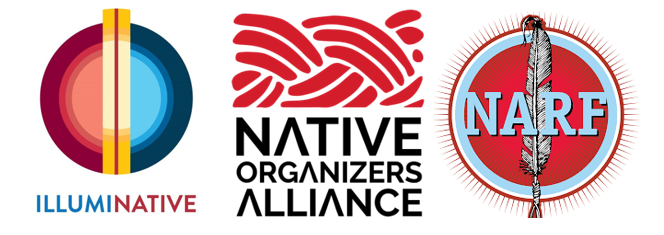
- Details
- By Native News Online Staff
In commemoration of the 100th anniversary of the Snyder Act, three prominent Native American organizations— IllumiNative, the Native American Rights Fund (NARF), and the Native Organizers Alliance (NOA)—have declared a National Day of Action and Reflection on Sunday, June 2. This day will highlight the ongoing struggles and achievements of Native peoples in the United States.
The Snyder Act of 1924 granted U.S. citizenship to all Native Americans born in the country. However, it did not immediately secure their right to vote, sparking a protracted battle for voting rights that continues to this day. Native Americans still face substantial obstacles in accessing election services, and new legislation often seeks to disenfranchise Native voters. This centennial serves as an important moment to reflect on these issues and promote a unified narrative about this critical chapter in U.S. history.
IllumiNative, a Native-woman-led organization dedicated to racial and social justice for Native communities, alongside NARF, the nation’s leading Native-led nonprofit law firm, and NOA, the largest network of grassroots Native voting organizers, are spearheading this initiative. They are launching an online campaign inviting individuals and organizations to join the National Day of Action and Reflection. The campaign encourages people to educate themselves on the Snyder Act, check their voter registration status, and support the Native American Voting Rights Act (NAVRA).
"The centennial of the Snyder Act is a crucial moment to deepen awareness and foster meaningful dialogue around the complex and multifaceted realities of U.S. citizenship and Tribal citizenship for Native peoples," said Crystal Echo Hawk, Founder and CEO of IllumiNative. "Through our National Day of Action and Reflection, we aim to honor our history, address the enduring challenges, and celebrate the advancements within our communities."
Judith LeBlanc, Executive Director of Native Organizers Alliance, emphasized the importance of dual citizenship. "The federal government unilaterally conferred U.S. citizenship with the hopes of trading land for the vote. And way too many are now trying to restrict our right to vote on our own territories," she said. "Our power and possibility of achieving self-determination and sovereignty comes from being dual citizens, both U.S. and Tribal citizens. We will provide a path towards sovereignty by exercising both citizenships – at the ballot box and through organizing Native grassroots political power to achieve self-determination and sovereignty."
Jacqueline De León, Senior Attorney for NARF, highlighted the ongoing challenges faced by Native Americans. "It has been 100 years since the passage of the Indian Citizenship Act, but Native Americans are still treated as second-class citizens and denied an equal opportunity to vote," she stated. "The resulting lack of representation has consequences. We have worse infrastructure, health outcomes, education, and food access. That’s why the Native American Rights Fund is fighting every day in courts and in Congress to protect Native American sovereignty and claim Native Americans’ place in America’s Democratic Republic. Democracy is Native, and Native people will fight for the power it confers."
More Stories Like This
Native News Weekly (August 25, 2024): D.C. BriefsNavajo Nation Mourns the Passing of Former Vice President Rex Lee Jim
Deb Haaland Earns Endorsement From Communications Workers of America Local 7076
University Soccer Standout Leads by Example
Two Native Americans Named to Democratic Congressional Campaign Committee's“Red to Blue” Program
Help us defend tribal sovereignty.
At Native News Online, our mission is rooted in telling the stories that strengthen sovereignty and uplift Indigenous voices — not just at year’s end, but every single day.
Because of your generosity last year, we were able to keep our reporters on the ground in tribal communities, at national gatherings and in the halls of Congress — covering the issues that matter most to Indian Country: sovereignty, culture, education, health and economic opportunity.
That support sustained us through a tough year in 2025. Now, as we look to the year ahead, we need your help right now to ensure warrior journalism remains strong — reporting that defends tribal sovereignty, amplifies Native truth, and holds power accountable.
 The stakes couldn't be higher. Your support keeps Native voices heard, Native stories told and Native sovereignty defended.
The stakes couldn't be higher. Your support keeps Native voices heard, Native stories told and Native sovereignty defended.
Stand with Warrior Journalism today.
Levi Rickert (Potawatomi), Editor & Publisher


